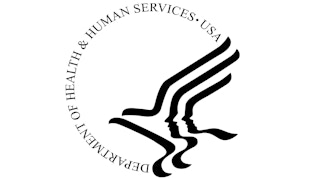
Cookies in use
HRC and Services and Advocacy for GLBT Elders Deliver Tens of Thousands of Public Comments
by HRC Staff •

HRC and Services and Advocacy for GLBT Elders staff delivered tens of thousands of public comments from our members and supporters to the Department of Health and Human Services in response to the agency's plan to eliminate data collection efforts directed at LGBTQ seniors.
Last week, HRC and Services and Advocacy for GLBT Elders (SAGE) staff delivered tens of thousands of public comments from our members and supporters to the Department of Health and Human Services (HHS) in response to the agency's plan to eliminate data collection efforts directed at LGBTQ seniors.
The Trump Administration proposed a single change to the 2017 National Survey of Older Americans Act Participants (NSOAAP) —the removal of a question that allowed older people to identify as LGBTQ. This critical survey measures the degree to which federally funded aging programs, like Meals on Wheels, reach older adults across the country. The removal of this question – and only this question – is deeply disturbing and will undoubtedly impede the important federal mission of the Older Americans Act to fully serve those most in need.
There are an estimated 1.5 million LGBTQ seniors living in America today, and this number is estimated to double by 2030. LGBTQ older adults, who have faced a lifetime of stigma and discrimination, are resilient, yet vulnerable, and frequently face the challenges of age and illness without the traditional support systems and legal protections other seniors take for granted. Studies have also shown that LGBTQ older adults are more likely to need community and governmental supports like those provided by the Older Americans Act than their straight counterparts due to this absence of family and the reliance on peer support networks. Comprehensive, uniform data collection is an essential tool to ensure that LGBTQ seniors have equal access to the federal programs and services to which they're entitled.
In addition to collecting comments from our members and supporters, HRC and SAGE each submitted formal organizational comments highlighting the well-established federal government support for increased data collection on LGBTQ older adults and directly calling into question the Administration’s response to inquiries in the days after the removal. The Administration has cited the Paperwork Reduction Act's requirements regarding surveys to account for the removal of a single question targeting an underrepresented and vulnerable population in a broad nationwide survey. Although HRC respects the requirements of the Paperwork Reduction Act we know that eliminating a single question from the survey will do little to relieve the burden of citizens completing it. We not only urge the Administration to restore this question, but to also engage in meaningful analysis of the question and methodology used to ensure robust and representative responses. Likewise, we urge the Administration to advance a plan to ensure the aging network will account for and meet the needs of this population.
Leaders on both sides of the aisle in the House of Representatives and the Senate sent letters directly to the Administration condemning the removal of sexual orientation from this survey and highlighting the persistent barriers to services and care facing LGBTQ seniors. Rep. Ted Deutch (D-FL) Chair of the LGBT Aging Issues Task Force of the Congressional LGBT Equality Caucus, was joined by 49 House colleagues on the House letter. While Senators Susan Collins (R-ME) and Bob Casey (D-PA), the Chair and Ranking Members of the Senate Special Committee on Aging, were joined by 17 other Senators. The Center for American Progress, the Williams Institute, and the National LGBTQ Taskforce, and other important allies have also engaged with the Department and have worked to elevate the critical role that data collection plays in the development of efficient and inclusive public policy.
We will keep you posted on how the Administration decides to proceed, and we will be keeping a close eye out for similar attempts to remove LGBTQ people from federal data collection efforts.
- Topics:
- Federal Advocacy
- Health & Aging
Love conquers hate.
Image:
Wear your pride this year.
100% of every HRC merchandise purchase fuels the fight for equality.

